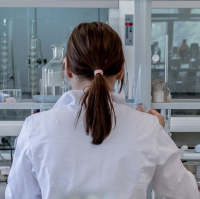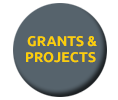
Wellington-based medical researchers have received up to $73,684 in Research For Life’s second funding round for 2023.
Research For Life funds innovative quality research undertaken by researchers in the early stages of their careers who through their work, will advance the quality of healthcare in the Wellington region and beyond.
This round saw four researchers receive research grants up to the value of $52,160 to undertake innovative medical research and nine travel grants, totalling $21,524 to assist local researchers meet the cost of presenting their research at medical conferences.
The successful applicants were:
Dr Amber Parry Strong
Dr Amber Parry Strong received a Research for Life grant of up to $6,859 to undertake research to help people with Type 1 Diabetes. Type 1 Diabetes affects around 11000 adults in New Zealand and her research team are always trying to find solutions that work clinically for people on a practical level. This project is looking at a high fibre foodstuff called konjac which can be eaten as rice or noodles, and the effect this has on blood glucose levels in type 1 diabetes. Dr Parry Strong is a Research Fellow at the Centre for Endocrine, Diabetes and Obesity Research at Wellington Hospital.
Dr Sarah Sczelecki
Dr Sarah Sczelecki, A/Prof Janet Pitman and Dr Claire Henry received a Research for Life grant of up to $16,434 to undertake research to assess a potential ovarian cancer screening methodology. Ovarian cancer is the most lethal gynaecological cancer, partly due to the lack of a diagnostic test for general population screening. This research will investigate the feasibility of ovarian cancer diagnostic testing using vaginal swabs collected similarly to the new national cervical screening self-swabbing programme.
Emily Paterson and Ceridwyn Jones
Emily Paterson and Ceridwyn Jones received a Research for Life grant of up to $8,685 to investigate neutrophil extracellular traps (NETs) in endometriosis. Endometriosis is a common gynaecological disease affecting around 1 in 9 women, while also affecting gender diverse people. Their research project aims to identify non-invasive biomarkers of endometriosis which intends to address and minimise the current seven-year diagnostic delay experienced by people with endometriosis. Emily is PhD student with the University of Otago Wellington and Ceridwyn is PhD student with Te Herenga Waka Victoria University of Wellington, both conducting their research out of the Clinical Research Laboratory at Wellington Regional Hospital.
Hannah Boswell
PhD student Hannah Boswell received a Research for Life grant of up to $20,182 to aid in research to improve influenza vaccines. Influenza is a serious cause of disease and mortality in New Zealand. Ms Boswell’s research is focused on how we can make influenza vaccines able to be inhaled in order to hone our immune responses directly to the lung where influenza is first encountered. The aim is to find new ways to enhance our own immune cells to respond better to potential influenza vaccines. Hannah Boswell is a third year PhD student at the Malaghan Institute of Medical Research and Te Herenga Waka - Victoria University of Wellington.
Olivia Burn
Dr Olivia Burn, a postdoctoral research fellow at the Malaghan Institute was awarded up to $3,046 to present and attend the CD1-MR1 conference in Hobart, Australia. Olivia’s research is focussed on leveraging NKT cells to enhance immune responses against liver cancer. The conference, known for its cutting-edge research and networking opportunities, provided Olivia with a platform to gather valuable feedback from experts in the field and establish collaborations that amplify the impact and scope of her research.
Sotaro Ochiai
Sotaro Ochiai, a research fellow at the Malaghan Insitute of Medical Research, was awarded a travel grant of up to $3,000 to present his research findings at the EMDC (European Macrophages and Dendritic Cell Society) conference. As someone who personally experiences allergies, Sotaro’s research is dedicated to unravelling how allergic diseases are initiated and prolonged. His objective is to alleviate health challenges faced by individuals with allergies and to help reduce the prevalence of allergic diseases.
Niamh Walsh
Niamh Walsh, a third-year medical student at the University of Otago was awarded a travel grant of up to $1,500. She completed a Summer Student project in Wellington under the supervision of Dr Annie Wong. This project was focused on looking at real-world outcomes of immune checkpoint inhibitors for melanoma brain metastases in New Zealand. This is the first national study of patient outcomes across seven cancer centres. Through this project and personal experience, Niamh has gained an interest in oncology and improving the lives of cancer patients in Aotearoa.
Jenni Francis
Jennifer Francis, a PhD candidate in the School of Biological Sciences at Victoria University of Wellington was awarded up to $3,000. Jennifer’s research is focused on creating a pipeline which allows her to discover weak (“primordial”) antibiotic resistance genes from the wider bacterial ‘resistome’, followed by use of directed evolution as a method of engineering them into stronger resistance enzymes. The evolution of the antibiotic resistance enzymes offers valuable information several ways. Firstly, by evolving weak resistance enzymes into stronger enzymes, the ‘ease of evolution’ may be assessed, which can act as a rough indicator of how likely such resistance is to arise in a clinical setting. Additionally, understanding the mechanisms by which bacterial enzymes confer antibiotic resistance is useful information for the synthesis of newer generations of existing antibiotics. Lastly, by creating such resistance enzymes before they arise in a clinical setting, she is able to test them for collateral resistance and sensitivity against other antibiotics, therefore offering insights to responsible stewardship or pertinent information to the doctors treating antibiotic-resistant infections.
Dr Hung-En Lai
Dr. Hung-En Lai, a postdoctoral research fellow in the research group of Dr. Jeremy Owen at the School of Biological Sciences, Victoria University of Wellington, received a travel grant of $2,735 to present his research at the 2nd AUSNZ Natural Products Chemistry and Biology Symposium and the 2023 Synthetic Biology Australasia Conference in Perth, Australia. Hung-En has a research focus on antibiotic discovery using genomic mining approaches to combat antimicrobial resistance. His research applies the knowledge of how existing antibiotics are made in nature, and cutting-edge synthetic biology tools, to accelerate discovery of new antimicrobials using the genomics-to-drug pipeline.
Rebecca Palmer
Rebecca Palmer, a PhD student at the Malaghan Institute of Medical Research received a travel grant of up to $1,363 to present her research on metabolism in immune cells at the Australia and New Zealand Society of Immunology scientific meeting in Auckland this year. Rebecca’s interest lies in understanding how the immune system works in tissues that are exposed to the outside world such as the lung. She is particularly interested in what happens within the lung post exposure to different infectious disease and how this alters cells and the ability for other infectious diseases, whether related or not, to make us sick. This research is aimed to improve or find new ways to develop vaccines for infectious respiratory diseases.
Elysha-Rose Grant
Elysha-Rose Grant, a PhD student in the School of Biological Sciences at Te Herenga Waka - Victoria University of Wellington, has received a travel grant of up to $2,000 to present her findings at the annual Australian and New Zealand Society for Immunology (ASI) conference held in Auckland later this year. Elysha’s research interest lies in discovering compounds that alter aspects of the immune system, rather than causing widespread suppression, which could be used to treat chronic inflammatory illnesses. Elysha will present her findings on how immune cell function is altered by a new compound, which was derived from fungal cultures.
Afnan Al Abadey
Afnan Al Abadey, a PhD student at School of Biological Sciences at Victoria University of Wellington, received a travel grant of up to $1,880 to present her research findings at Australian and New Zealand Society for Immunology (ASI) annual scientific meeting this year. Afnan’s research investigates how kappa opioid receptor agonists impact an important cell type in the brain, known as microglia, in inflammatory conditions that mimic multiple sclerosis. Microglia play a complex role in multiple sclerosis because they’ve been shown be involved in both active inflammation and remyelination.
Sarah Messenger
Sarah Messenger, a PhD student at Victoria University of Wellington, received a travel grant of up to $3,000 to attend the Enzyme Engineering XXVII 2023 conference which took place in Singapore. She presented work describing an original and innovative strategy to create vast chemical libraries of non-ribosomal peptide compounds, by carrying out substitutions en masse into the enzymes responsible for their biosynthesis. This has considerable applications for development of anticancer and antibiotic drugs. Her intention is to reduce the costs of drug development by creating feasible strategies to rapidly explore a large number of compounds and produce them cheaply by fermentation.



